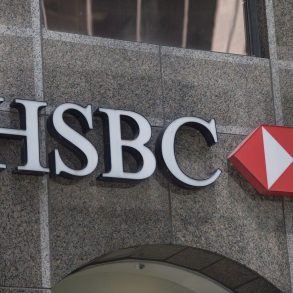BMO and HSBC have joined a slew of other lenders in raising their variable rates to prime + 1%. (This applies to new deals and renewals–not existing customers). There are still a few deals out there to be had, but the remaining below-prime lenders are disappearing quickly.
All of this may accelerate the trend toward fixed rates. When faced with a 5.75% variable or a 5.50% fixed, variables will be a very tough sell for most homeowners.







As I understood, the Canadian banking system was in good shape because Canadian banks hadn’t exposed themselves to much of the subprime (US and Canadian) market. Indeed none of our major banks are on the brink of being nationalized (other than write downs earlier this year). So I’m not sure why our banks are tightening-up lending ? Any insights are appreciated.
Scotia too. Prime + 1%
http://www.scotiabank.com/rates/mort_rates.html
BMO Prime + 1.00 (3-year open)*
BNS Prime + 1.00
CIBC Prime
NAT Prime – .25**
RBC Prime
TD Prime + 1.00
* Effective Oct 14/08
** Website still says P -.25
National Bank will be at prime +1% as of tomorrow.
National Bank will be at prime +1% as of tomorrow.
Vince,
Our banks aren’t collapsing entirely because they’ve (largely) avoided the subprime mess in the states.
The reason they are tightening lending is because they credit markets are freezing up and it costs them more to borrow the funds that they lend to the end consumer. The two are related but not the same.
Thank you Reverend.
The cost of funds are higher on fixed rates because of the bond rate. The banks get their funds from the government for overnight lending for Prime, which is going down. Raising their rates just shows that they don’t want to lend out money due to risk.
Vince,
In my opinion, it may well be that Canadian banks end up in worse shape than their American counterparts. Somebody please correct me if you have facts proving otherwise, but here is my take on things.
The US banks lent money to homebuyers, subprime, Alt-A, prime, etc. Most of those mortgages were securitized and sold around the world. Indeed many of bigger investment banks also bought those securities, as did banks in Canada such as CIBC. As the US housing bubble popped (inning 4 or 5 out of 9 currently), the mortgages and hence their securities came to be worth less (worthless?), and thus all the write downs we have seen all around the world.
The Canadian banks, in contrast, have apparently NOT securitized most of the mortgages that they originate. What that means is they still have those mortgages on their balance sheets. When the Canadian housing bubble pops (1st inning of 9) the “worth less” mortgages will have to be written down by the banks. This means HUGE losses for those banks. The losses will not be spread out nearly as much as the losses were in the US b/c they were not sold off to investors.
Now, we have the CMHC which guarantees many of these mortgages….but from what I understand, that just means that when our banks start suffering the massive losses, we, the taxpayer, will be on the hook. We won’t need a bailout bill passed since it’s alreday implicit in the CMHC.
It could be that the reason rates are going up is b/c the CMHC is not going to be insuring these risky 0/40 yr mortgages. Thus the risk to the banks has increased dramatically…by raising rates, they are acknowledging that they expect a higher percentage of their loans to default.
I don’t know why we in Canada are so convinced that we “don’t have subprime here”. We do. It’s just got a different name. Besides, the housing bubble in the US was not just a sub-prime issue. Subprime was only the tip of the iceberg. The real problem was that home prices got too expensive relative to incomes, and they are now reverting towards the long-term norms. (median home price of approx 3 time median income)
Everybody better buckle up. My guess is home prices will drop 40-60% in Vancouver, 25-50% in Cgy/Edm/Sask/Reg/Wpg, and 15-35% in Toronto, Southern Ont. This will take Canada back to more historic ratios of home price to income. If that does indeed happen, it will have a huge effect on our banks, and in turn, the CMHC, and thus on the ability of the banks to lend money.
Thanks for the interesting post Toronto Bear and although I do agree Canadian banks operate with some exposure to subprime, I don’t think it approaches anywhere near what happened in the US. Lending institutions like Countrywide operated 1/2 their business with sub-primes while Canadian Banks work with about 5% as a rule. Its true RBC and TD took writedowns this year (almost all due to US subprime losses) but it didn’t affect their business.
I don’t think it’s a matter of subprime or not. It’s an issue of whether housing values are going to decrease and people start defaulting on their mortgages.
If you think the housing bubble in the US was caused by these so-called “sub prime” mortgages, I think you are in for a surprise.
Time will tell…but it’s likely that the Canadian bubble will pop more rapidly than the US bubble did, due to two factors: first, that their is a lot of fear in the market now, knowing what has happened to real estate south of the border. Second is that the economy is already in a recession (yes, even in Canada) and with increasing unemployment, the rate of mortgage failures and foreclosures will probably increase more rapidly in Canada than it did in the US. The US bubble popped while the economy was still blistering and unemployment was extremely low.
The IMF stated yesterday Canadian banks are the safest in world. In fact Canada is expected to outperform the G7 countries through 2009.
I hear what your saying, and as you mention only time will tell. I live in Calgary, and there’s little sign of slowing down here. We’re hiring like crazy and there’s certainly no default crises, although home inventories are a little high and prices appear to be adjusting. It should be pointed out many home sales are a result of first time buyers entering the market (in Clagary) and dragging prices lower, not due to fear, although I’m sure it exists. Home sales in Edmonton reached an all-time high in the month of September.
Yes as you say, time will tell. If I were a gambler, I know where I’d put my money. I followed the US housing bubble and collapse in great detail and noted that the common theme was that people, regardless of where they live, feel their area is different or somehow immune. I have friends and family from the Peg that feel 50% increases in 3 yrs is somehow justified by fundamentals. I mean come on! LOL!
And now today we have our bailout of the banks already in place. 25 billion to buy bad mortgages! Factoring in the 10x population difference b/t here and the US, that’s equivalent of about 250 billion, or close to on-par with the US bailout. Why would our gov’t need to buy all these bad mortgages if they didn’t already know we are facing the exact same problem. Socialism for the rich…get the taxpayers to bailout the banks and speculators. Incredible. AT least in the US they had to pass a law to do it…why not here? This is a travesty.
Your missing the point, our banks never operated ARMs. In the US banks sold ARMs with 1% financing for 2-3 yrs and then adjusted those rates to 6-7% in year 3 – that’s about a $2000.00 increase in monthly payments. That’s what happened in the US. The US banks also practiced (un)red-lining where persons who couldn’t qualify for a rent were getting $500,000-$600,000 mortgages driving up the prices of homes. When the market caved-in eventually, homes re-adjusted in price and many homebuyers who couldn’t pay the adjusted ARMs were now facing losses resulting in massive foreclosures. That didn’t happen or hasn’t happened in Canada. But it did happen in the UK and Spain. German banks invested heavily in US MBS. French and Italian banks operated similarly to Canadian banks (ie., conservative or with 5% sub-prime business).
While it is true that the Canadian banks do not have the exposure to subprime mortgage that their American counterparts do, they have their own risky portfolios, particularly exposed to their bond investments in the US, American bank holdings, and short term obligations from US banks coming due.
Canadian lending on homes has always been more conservative than US and British Lendng but it won’t stop the world wide credit crisis from damaging confidence in the banking system as a whole – including the otherwise stable Canadian banks